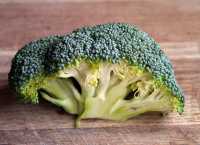
13 Aug Apples, Blueberries, Broccoli Decrease Mortality Risk
MedicalResearch.com Interview with:
 Nicola Bondonno PhD
Nicola Bondonno PhD
National Health and Medical Research Council Early Career Research Fellow
School of Medical and Health Sciences
Edith Cowan University
Joondalup Perth WA
MedicalResearch.com: What is the background for this study?
Response: In an aging society, there could be a huge importance in appropriate evidence-based diets to reduce mortality risk. Therefore, our main question was ‘do diets high in flavonoids reduce the risk of all-cause and cause-specific mortality and is this relationship affected by lifestyle risk factors for early mortality’?
In brief, this is the largest study of flavonoid intake and mortality outcomes to date. This population based cohort study was conducted in 56,048 men and women of the Danish Diet, Cancer, and Health Cohort, followed for 23 years, with estimated intakes of 219 individual flavonoid compounds. The results provide a clarity not seen in previous smaller, often underpowered studies.
MedicalResearch.com: What are the main findings?
Response: Our main finding was that a moderate habitual intake of flavonoids was inversely associated with all-cause, cardiovascular- and cancer-related mortality. This inverse association plateaued at intakes of approximately 500 mg/day. This threshold level is well within daily dietary achievable limits: one cup of tea, one apple, one orange, 100 g of blueberries, and 100 g of broccoli would provide most of the flavonoid subclasses and over 500 mg of total flavonoids. Interestingly, those at the highest risk of early mortality (smokers and high alcohol consumers) appeared to benefit the most from higher flavonoid intakes.
MedicalResearch.com: What should readers take away from your report?
Response: Our results suggest that flavonoids afford the most protection to smokers and high alcohol consumers – this finding requires confirmation in clinical trials. Future studies are required to determine which types of cardiovascular disease and which types of cancer flavonoids are most protective against. This could give us clues regarding the mechanisms by which flavonoids exert their effects.
MedicalResearch.com: What recommendations do you have for future research as a result of this work?
Response: In this study we found that the protective effect of flavonoids was strongest for smokers and those who drink more than the recommended 2 standard drinks per day. These people are at a high risk of heart disease and cancer and appeared to benefit the most from a flavonoid-rich diet.
It is important to note that flavonoid consumption does not counteract all of the increased risk of death caused by smoking and high alcohol consumption. By far the best thing to do for your health is to quit smoking and keep your alcohol consumption below the recommended 2 standard drinks per day.
Citation:
Flavonoid intake is associated with lower mortality in the Danish Diet Cancer and Health Cohort
Nicola P. Bondonno, Frederik Dalgaard, Cecilie Kyrø, Kevin Murray, Catherine P. Bondonno, Joshua R. Lewis, Kevin D. Croft, Gunnar Gislason, Augustin Scalbert, Aedin Cassidy, Anne Tjønneland, Kim Overvad & Jonathan M. Hodgson
Nature Communications volume 10, Article number: 3651 (2019)
https://www.nature.com/articles/s41467-019-11622-x
[wysija_form id=”3″]
[last-modified]
The information on MedicalResearch.com is provided for educational purposes only, and is in no way intended to diagnose, cure, or treat any medical or other condition. Always seek the advice of your physician or other qualified health and ask your doctor any questions you may have regarding a medical condition. In addition to all other limitations and disclaimers in this agreement, service provider and its third party providers disclaim any liability or loss in connection with the content provided on this website.
Last Updated on August 13, 2019 by Marie Benz MD FAAD
